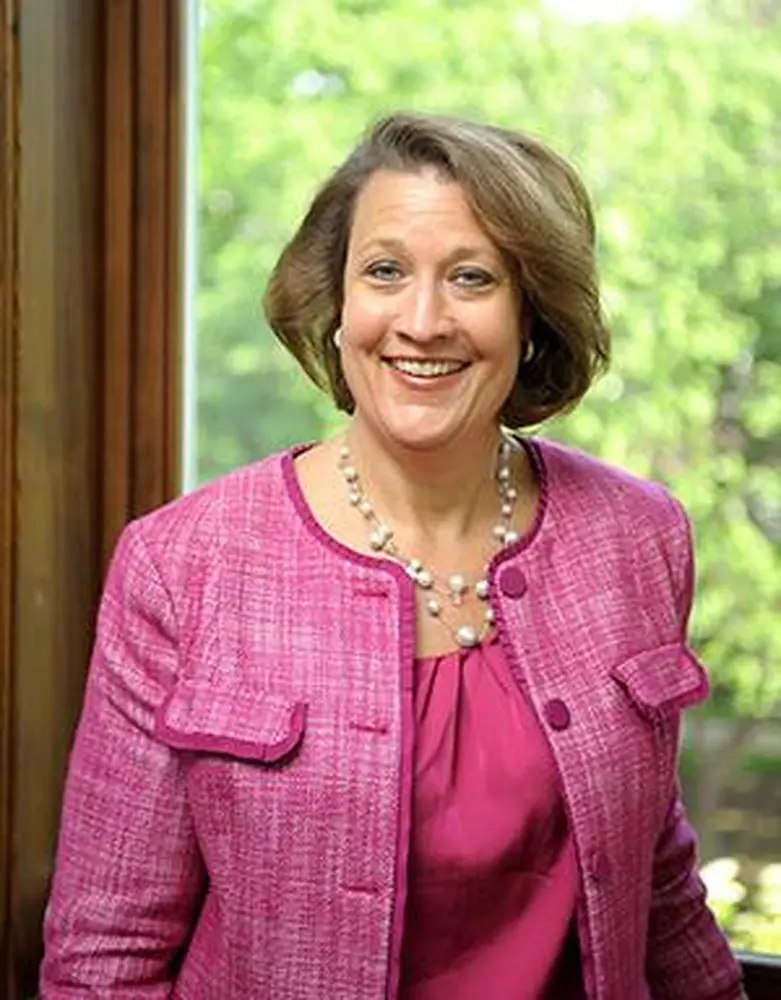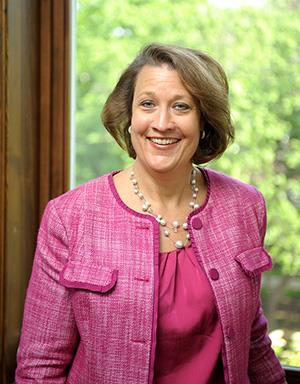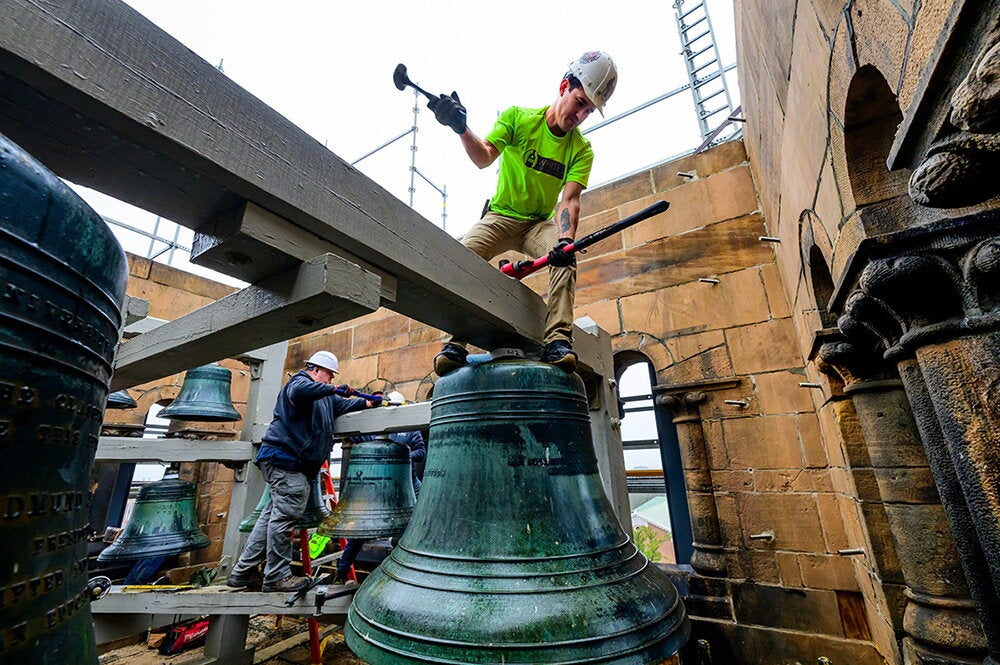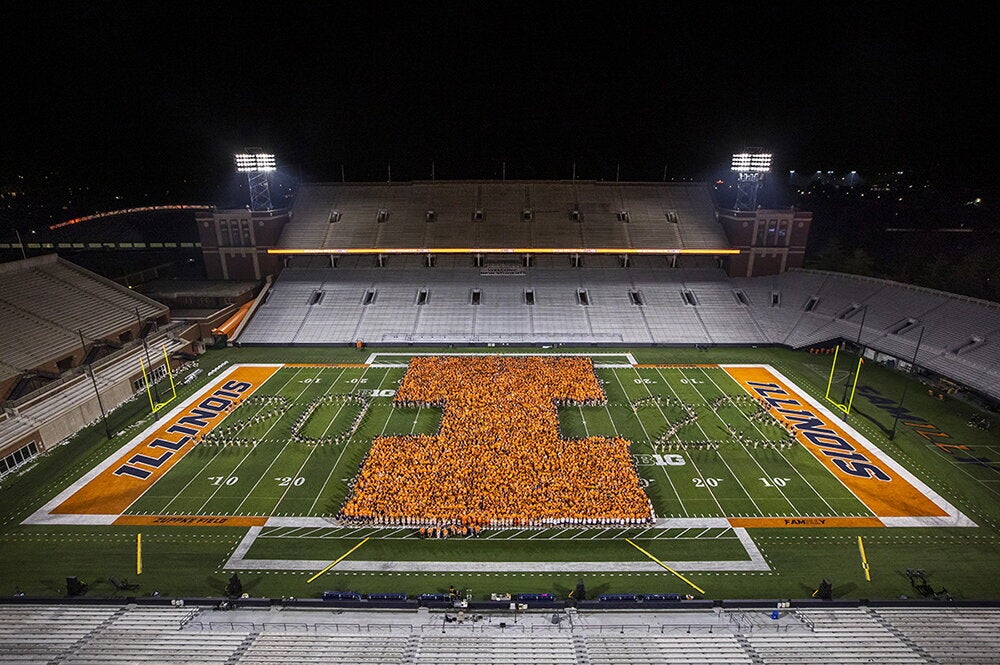

For Ruth Watkins, taking a bull by the horns is not just an old cliché. She actually knows how to take a bull by the horns.
Growing up in northeast Iowa as the daughter of a large animal veterinarian, dehorning cattle was just one of the gritty tasks required while administering veterinary care. With a wry smile, she adds that the lessons learned while wrestling cows didn’t necessarily become irrelevant as she moved on into academia.
To be clear, Watkins loved her job as Harry E. Preble Dean of the College of Liberal Arts and Sciences too much to draw a direct correlation to her early years. But since she arrived in 2009, the college has handled a variety of, well, large issues.
Those include the effects of three leadership changes in the president’s office and a deep recession. Yet not only has LAS emerged from these times more financially stable, but with Watkins at the helm it emerged with promising new academic programs, long-term strategies, and a renovated Lincoln Hall.
In her office on the second floor of Lincoln Hall one recent afternoon, Watkins recalled that during her first days as dean she occupied the exact same space before the renovation. The plaster was peeling and there was an asbestos-wrapped pipe in the corner. Those features, of course, were among the many remedied during construction, but the change remains symbolic of what has been accomplished during her tenure as dean.
She says it with some nostalgia. After five years as dean—and 20 years at the U of I—Watkins is leaving Illinois to become the next senior vice president for academic affairs at the University of Utah. The news has been met with very mixed emotions as Watkins has earned wide respect for her leadership roles, including directing the U of I’s largest college.
“Ruth’s dedication, incredible work ethic, and unwavering spirit of optimism reflected her deep commitment to the University, our faculty, staff, and students, and our future,” says U of I President Bob Easter. “She built a legacy of excellence in every position she held at the University of Illinois. I’m proud to have been able to call her a colleague and friend.”
Known for her personable and approachable manner, along with a knack for creating consensus, Watkins hardly mentions herself at all when assigning credit for the accomplishments of the past five years. She praises faculty, staff, and alumni for a collective effort that steered the college through some of the toughest financial times in U of I’s history.
“In some ways I think we were actually helped by the economic crisis because everybody became aware of financial stresses in the college, and it made it very apparent to our faculty, our leaders, and to our staff that our situation was being impacted by this larger financial context,” she says. “And we accomplished it with incredible leadership in the departments, the schools, and individual faculty.”
That leadership included necessary strategic planning that occurred across the college when faculty hiring in particular was cut to about a quarter of what had been normal during more financially secure years.
“Not that everyone always agreed, but there was a healthy dialogue and a team-based decision about the areas that we really needed to hire faculty during that time, knowing that we could only hire a very small number,” Watkins says. “And what came from that was a much stronger strategic focus on the part of the college that was shared not in departmental silos but across departments.”
For every one of these tough decisions, she added, the college received support from campus. That was true even during times when campus leadership was in transition, Watkins says.
“As we managed our finances better, the campus met us partway and really helped with increasing the budget of the college,” Watkins adds. “So as we began to show good strategic actions and strategic thinking, the campus would help increase the resources.”
Watkins arrived on campus in 1993 as an assistant professor in the Department of Speech and Hearing Sciences, and she was named an associate dean in the College of Applied Health Sciences in 2000. In 2003 she was named an associate provost, and then named vice provost in 2006. In 2009 she was named dean of the College of LAS.
During Watkins’s time as dean, the college created new academic programs, such as the Top Ten Innovation Initiative aimed at bringing more active learning techniques to large introductory classes, and the Blockbuster Course Initiative, which combines a variety of academic disciplines to create a course that explores a topic in depth (such as the history of the automobile).
Efforts are also well underway to renovate the Natural History Building and the Chemistry Annex, both of which are in sore need of an upgrade.
As dean, Watkins also championed the creation of a Lincoln Scholars program to provide access to the University of Illinois to students with strong academic records who also have need for financial assistance. The money for the four-year scholarships is being raised through naming opportunities in the renovated Lincoln Hall, and so far friends and alumni have donated roughly half the goal of $10 million for the program.
As a result, between 25 and 30 first-year students will arrive at the College of LAS as a Lincoln Scholar this fall. That number is a steep increase from the initial nine who were the original Lincoln Scholars, in fall 2012.
“That program is so important for the University,” she says. “It lets us reach talented people, and it’s such a statement about the generosity and support of our alumni. From whatever office I’m in, I will be pleased to celebrate the success when that $10 million goal is hit.”
The college has named Brian Ross, a longtime faculty member and associate dean, as interim dean starting August 1, when Watkins officially resigns her post. As she prepares to leave, Watkins reflects on how much she’s learned in the position.
“I think there was a time before LAS when I was in the provost’s office that I thought the college might be better if it were smaller and if there were smaller units,” she says. “What I have seen over the time that I’ve been here is that this college is the one place where those kind of interdisciplinary understandings and partnerships, balance across areas, can really happen successfully and effectively. The mission of the sciences is enhanced by knowledge of and partnership with the humanities, and vice versa.
“I think that the importance of all the areas of the college is so much more clear to me now,” she adds. “I have developed a strong sense of the value of liberal arts and sciences as an entity. Not something that is of the past, but is vital for the future.”


